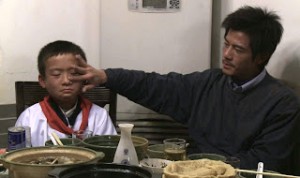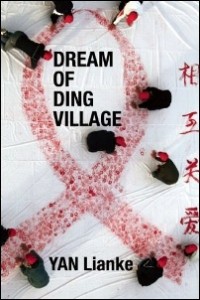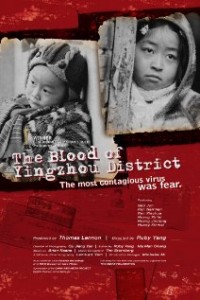Gifford’s book so far has been an eye opening perspective to the Chinese culture and way of life. Walking amongst the locals in our area, I always ask myself the question “what do they really believe is moral and what is not?” Or other questions like, “what do they think about the things their government allows and does not allow?” There are days after I’ve been reading I reflect on all the people I’ve met here and wonder. Have they experienced any situations that could relate to Gifford’s experiences? I have not yet met a person who has talked about the AIDS villages in Henan. The chapter about the AIDS villages in Henan was not an easy chapter to finish. Many times while reading I pictured in my head, getting on the steps of CNU and yelling to people, “why are you living in a place that allows this?”
Gifford interviewed men from a village in Henan province on this subject. As he painted the picture of these men he stated, “About fifteen of them, sitting there, in silence. Ordinary farmers who are under a death sentence because of official corruption, and now official negligence.” Sitting down with Gifford they talked about their lost loved one’s and the pain they’ve felt from the government’s actions. There are about “300,000 people infected with HIV in Henan province alone, and the epidemic has been entirely caused, exacerbated, and then covered up by the local Communist Party government.” Every situation that makes China appear weak has been covered up somehow. Even when the “United Nations warned that there could be 10 million cases in China by 2010 unless serious action is taken.” They didn’t take action even though the UN asked them to. If they did do something about the situation, then people would know of their weaknesses as a country. The HIV epidemic in Henan spread like wild fire and many people caught the virus because of the way they did the procedure of donating blood. China did everything to save face and so “Henan does all it can to restrict any kind of access to the AIDS villages, even trying to stop doctors and officials sent from Beijing from doing their work.” As the United Nations stated that if China did not get the help they needed, that 10 million cases would be created if actions weren’t taken. China has addressed that they have to attack the problem but they won’t allow doctors to come into Henan and treat them. Many loved one’s and friends have died because they did not receive treatment. One of the men stated that recently “The government has now been forced to give us something. They give us these drugs, and they give us ten Yuan every month as a kind of silence money.” I described another situation in my previous journal entry where someone was paid off. China believes by paying silence money then their country won’t hear the awful stories of the lives of these poor farmers who truly have nothing. One man explained that the situation has worsened, “none of us can find work, and so we have no money for our children’s education.” It makes me sad to think these families first needed the money but in the end it has made them suffer even more.
At the end of the chapter it reads the new consumer-friendly Party slogan: “Put the People First.” I thought about this slogan and reflected on the previous statements made and pondered are they really putting the people first. In my perspective after reading the chapter all they’ve done is they put themselves as a government before the people.
Books and Documentaries furthering on this subject
Dream of Ding Village by Yan Lianke
Life is a Miracle by Gu Changwei
 The Blood of Yingzhou District by Ruby Yang
The Blood of Yingzhou District by Ruby Yang

